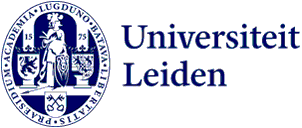
Tim Kaasjager: 'If you know you can make a unique contribution, you just have to start'
Trail, FGGA’s online internship platform, exists one year in November. High time to get to know the organisations making use of Trail. What do these organisations stand for? What tasks do interns have? And what have FGGA students to offer?
For this interview, we talked to Tim Kaasjager, Co-Founder and Head of Product Development at Biosphere Solar. Biosphere Solar is a young start-up working on the circularity of solar panels, with an emphasis on humane production and a sustainable life cycle.

What kind of organisation is Biosphere Solar?
Tim: 'As a young start-up, we are working on solar panel circularity, meaning that they can be repaired when needed. We try to source our materials for production in an ethical way. At this moment, the solar industry is not equipped to producing solar panels in a humane way. Nor are there plans for solar panels that need to be thrown out, which is what our company does focus on.'
'We are the only organisation focussing on the sustainability aspects of solar panels. A lot of people are happy simply to have solar panels, but we want to take it one step further. We believe it is not sustainable until you no longer have to throw away the solar panels or the materials needed for their production.'
When did you realise that this is what you wanted to focus on?
'I first completed a bachelor’s in physics, but I soon realised that I wanted to focus more on the application instead of the theory. I then did the mater Sustainable Energy Technology (TU Delft). That is where I really learned to apply the knowledge I obtained during my bachelor. During my master's I became more and more interested in the subject. At first, I thought: ‘It will all work out with those solar panels, but it turned out to be more complicated.’
Does the description of the internships you offer on Trail also focus on the circularity of solar panels?
'We want to offer the interns the space to experience personal growth. So, we are offering what we would like to see in our company and see if it fits with the tasks the interns would like to perform. Tasks for interns can be, for example, finding out how we as a company will be able to grow, but also market analysis or community building.'
What are the benefits of a young start-up according to you?
'Mostly that we are very flexible and are able to give interns a lot of space. We do not have very structured ways of working yet and as a result, interns are really thrown into the deep. This allows interns to learn a lot because they are given a lot of freedom.'
Why did you choose to offer internships on Trial?
'We wanted to not only recruit people from TU Delft, but also people specialising in alpha skills. We were not only looking for technical people but also for people working with a broader variety of perspectives.'
What advice do you have for students interested in starting a start-up?
'Do a lot of research. Call lots of people, do not be afraid to check up on things and conduct research to validate your ideas. It really does not matter whether it is completely new, as long as you have a different approach or a different method. If you know you have something unique to offer, just go for it.'
Text: Abdelkarim Megaiz
